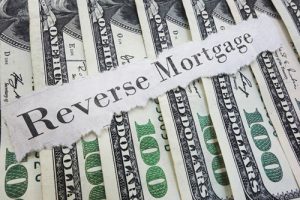 As much as there is positive feedback, contradictions, or myths about reverse mortgages, misconceptions can also be found. This is not surprising, considering what is involved in this financial program. Basically, it is the acquisition of monthly cash flow in addition to the monthly retirement income received by senior citizens 62 years old and above.
As much as there is positive feedback, contradictions, or myths about reverse mortgages, misconceptions can also be found. This is not surprising, considering what is involved in this financial program. Basically, it is the acquisition of monthly cash flow in addition to the monthly retirement income received by senior citizens 62 years old and above.
What are some misconceptions of reverse mortgages?
The Bank Owns Your Home
Firstly, there’s the belief that the bank owns your home the moment you avail of the reverse mortgage loan. This is not the case. The truth is your home is yours as long as you remember these three things.
- First, you are living in it.
- Second, you are paying your insurance and property taxes.
- Third, you are maintaining it in good, reasonable living conditions.
Additionally, you can cover those expenses using the monthly cash flow you get from the reverse mortgage.
It Is Very Risky
The financial program is risky. That’s the second misconception about reverse mortgages. On the contrary, this type of loan is safe. Why? The federal government provides protection. It prevents shady people and lending institutions from taking advantage of senior citizens. There are certain safeguards and strict regulations that the federal government has placed to promote the best interest of these individuals.
You’re Not Qualified If You Have An Existing Mortgage Balance
It is also a common misconception that you will not qualify if you still have a mortgage balance existing in your home. Again, this is not true. In fact, if your home still has sufficient equity, you are eligible. You only need to pay off your existing mortgage balance at the closing of the loan. But then, you can also use the reverse mortgage loan to cover that existing balance.
 Reverse Mortgages Are Taxable
Reverse Mortgages Are Taxable
Another common misconception about reverse mortgages is that they are taxable and affect your Medicare or social security. Not true. Why? The proceeds you get is a loan and not an income. Therefore, you don’t need to worry that the loan will be reduced because of the tax. However, you should consult with your Medicare and social security programs. This way, you can ensure you know the specific rules whether these are affected or not.
Total Is More Than Your Home’s Appraised Value
Another misconception about Myrtle Beach reverse mortgages is the false idea of owing a total more than your home’s appraised value. In fact, the federal government protects this financial program. This way, your estate or home will not get a higher debt than its total appraised value.
When your reverse mortgage is due, your home the bank owns your home. Not true. As long as you are living in that home, you maintain its title and control it on your own terms. When you move out of that property, though, you have to pay the loan. There are two ways to do this.
- First, by selling the estate.
- Second is by using its proceeds to pay or by paying it through other fund sources.
Other family members will object to reverse mortgages loans in Myrtle Beach because they are not comfortable with its effects. On the contrary, there are many things that you can use to help them to live their life more comfortably. For example, with the monthly loan income, on top of the monthly retirement pension pay, senior citizens can use the money for may things. For instance, they can use it to pay for their grandchildren’s education, renovation of the house, cover for large emergency expenses, and many more.
Call Reverse Mortgage Specialist today for a no-obligation consultation with one of our qualified counselors who will explain all of the qualifications of reverse mortgages and discuss if this is the right decision for you.
David Stacy Reverse Mortgage Specialist
Myrtle Beach, SC 29577
(843) 491-1436
https://www.reverse-info.com
Areas Served: Myrtle Beach | Charleston | Columbia | Greenville | Hilton Head
